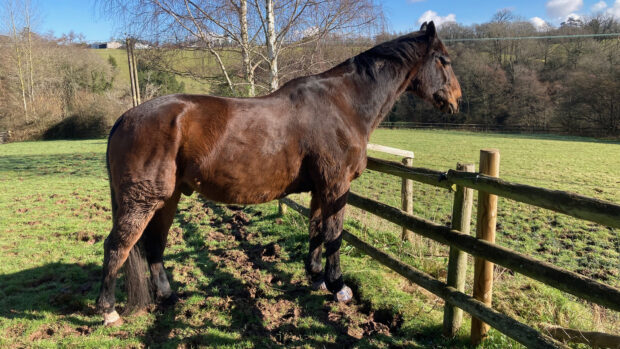Promotional Feature
If you’ve ever travelled horses in a trailer, you know how stressful it is to be responsible not only for driving safely but also for the animals’ well-being. Any emergency on the road, such as a blowout or a breakdown, is more dramatic when you have horses vulnerable and stranded in the trailer amidst a busy road — particularly if there’s traffic passing at speed.
Using safe and appropriate tyres is a crucial part of transporting horses as they carry the weight not just of the horses, but also the trailer and any kit on board. If you add water to the equation, the stress on the tyres can be great.
For your horses’ safety as well as your peace of mind, trailer tyres have to be really durable and reliable. Here, Tirendo, a leading British tyre dealership, shares tips on how to prevent tyre failure — both on the vehicle being used to tow the trailer and the trailer itself.
Care with discretion
Tyres that aren’t maintained properly can pose huge risks as they are unpredictable — and a blow-out while towing is dangerous and unpleasant.
Before hitting the road, carefully inspect your tyres for any signs of irregular tread wear: cuts, bubbles or areas with worn tread are all cause for concern. Remember that for the safe and legal towing in the UK, the tread must be at least 1.6mm deep. Aside from being against the law, shallower tread and balding tyres are hazardous and reduce grip and control.
Ensure that your tyres are compatible with the load they are required to carry by checking the appropriate weight load index. They also need to be inflated to the pound per square inch (PSI) recommended by the manufacturer. Make it a habit to check the tyre pressure with a gauge before you set off and each time you stop. Don’t attempt to make your tyres give a smoother ride by deflating them a bit; this practice can be very dangerous with trailers.
It’s essential to remember that any towing vehicle must of course be capable of pulling its trailer, but also — crucially — able to stop it, too. Make sure your vehicle is the appropriate size for the task, and that its power, torque and weight are sufficient for controlling the trailer in case of, say, a blowout. It’s better to use a bigger vehicle than a smaller one. An underpowered vehicle will have the effect of the tail wagging the dog.

Tips to prevent tyre failure when towing horses
- Know the weight of your trailer and select appropriate tyres accordingly. To ascertain the weight, take the towing vehicle and trailer to a weighbridge and weight them together. Then uncouple and weigh the towing vehicle alone and subtract that from the first reading to give you the weight of the trailer.
- When choosing tyres, opt for those with the best appropriate ratings for the load you are towing.
- As the overall length of the vehicle is long, allow more room when cornering to protect the tyres. This way you prevent the innermost tyre from being scraped against the curb or — if it is locked — from being dragged along the road surface.
- Drive defensively; keep a safe distance from other vehicles and stick to the left lane whenever possible so you can pull over easily if necessary.
- Rotate the position of the tyres every 5,000 miles — on both the vehicle and the trailer.
- Always use trailers with two axels. They help support the weight of the horses more stably, and offer more protection should one of the tyres fail.



